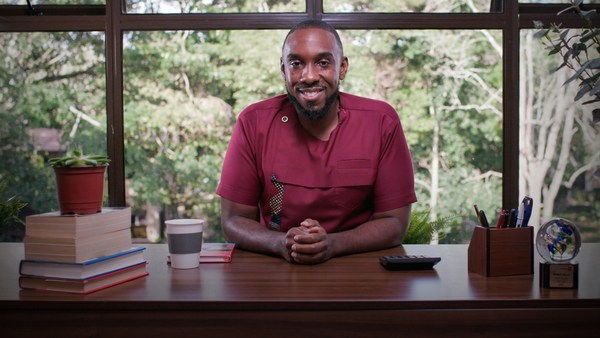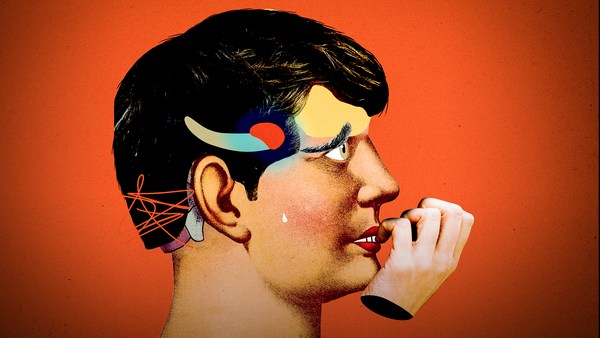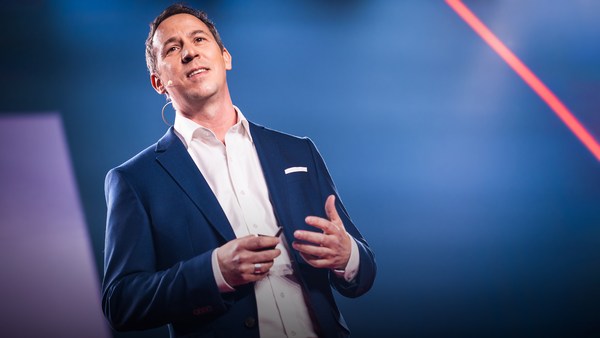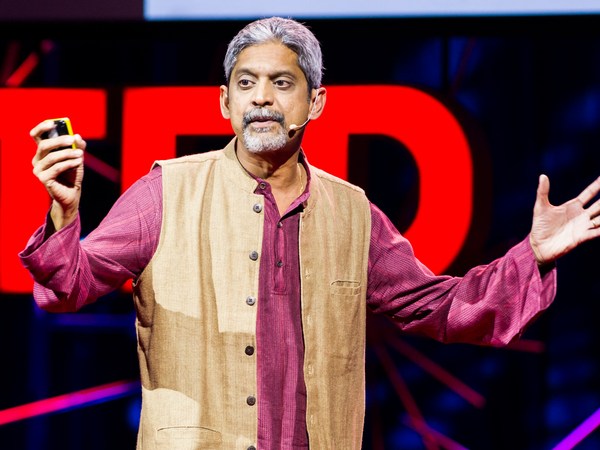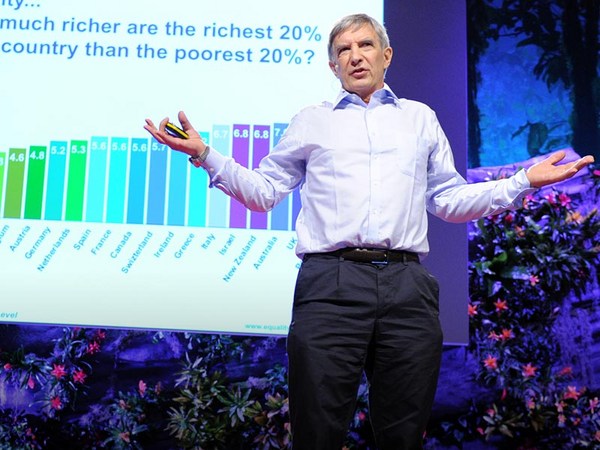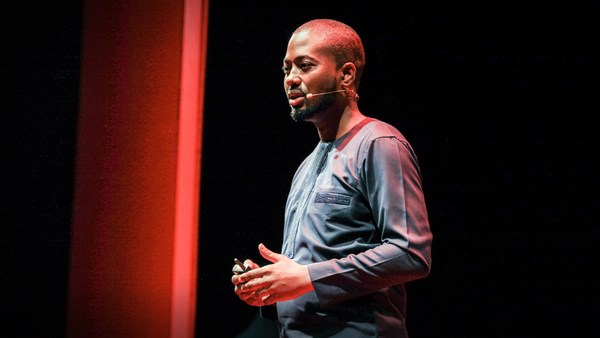I'm sure you've noticed the difference between posed photographs and pictures taken of people who are unaware of the camera. The pictures where people are unaware -- they often look like this. This picture was taken in central London. People in the prime of life, and yet everyone there looks haggard, depressed, anxious. Some of them look quite angry. Not a smile to be seen. And yet, if you look at pictures of people posed, they put their arms around each other, as in this picture. They smile. That's, I think, how we'd like to be seen, how we think we should be together.
Unfortunately, the data tells a different story. In the UK, surveys have shown that 74 percent of adults have felt so stressed or overwhelmed and unable to cope, 32 percent have had suicidal thoughts, 16 percent have actually self-harmed. In the USA, the picture's very similar: 79 percent felt stressed every day, and almost 60 percent have felt paralyzed by stress. When there are new figures that come out in the media showing levels of stress, depression, self-harm, drug abuse, eating disorders, what's the response? It's simply to demand more services, more psychotherapists, more psychologists, more psychiatrists. It's as if a large majority of the population were being seriously injured and instead of finding out what’s going wrong, we simply want more surgeons to stitch them up.
The crucial question we must ask is: Why is this happening? Why even in rich countries? I'm an epidemiologist, which means I've spent my career doing research on the causes of health and illness in populations. And I want to show you that inequality is a really powerful cause of higher levels of anxiety and mental distress, unhappiness, depression. I'd like you to cast your minds back to when you've felt anxious, embarrassed, nervous in front of other people, the social exposure, maybe when you're making a speech or going to a party where you don't know anyone. But all sorts of situations where we face the threat of being seen negatively cause these sorts of emotions.
This graph is a summary of hundreds of studies of exposing people to different kinds of stress while measuring what happens to their stress hormones, principally cortisol, a central stress hormone. And what it shows is that what most pushes up our levels of stress hormones are what is called "social evaluative threat" -- threats to self-esteem or social status, where others can negatively judge your performance. So although these social stresses are widely recognized and we're all familiar with them, people fail to see how inequality makes them worse for all of us.
In this slide, along the bottom, you've got different income groups, from the poorest tenth of the population on the left to the richest on the right. And up the side, you've got a measure of status anxiety, how worried people are about how they're seen and judged by others. The top line shows levels of status anxiety across all income groups in the more unequal societies. And the bottom line shows the much lower levels of status anxiety in the more equal societies.
I think what we're dealing with is whether we live in societies with a very steep social hierarchy like that, or a much shallower one like that. If you like: bigger material differences between us increase the social distances and those feelings of superiority and inferiority, and that makes a big difference to social relationships within society. Status and class become more important. We're less likely to marry people with a different class background. Community life, as I've said, drops away, and violence also goes up, because violence is triggered by people feeling looked down on. Loss of face, disrespected, humiliated -- those are the triggers of violence. And of course, for people who are more sensitive to status issues, violence is triggered more often. Consumerism also goes up, because we're all trying to enhance our self-presentation.
All sorts of measures of social interaction show the whole social structure becoming more ossified with inequality. Social mobility goes down, and with that, we're even further away from the equal opportunities which we claim to be trying to provide for children. So inequality isn't just about unfairness or poverty. It puts us in social relationships, relationships of superiority and inferiority. It ranks us from better to worse. It's a really invidious process, and it creates those feelings of inferiority at the bottom. It makes us judge each other more by social status, and with that, we become more worried about how we are seen and judged by others. There are two common responses to feeling so worried about how we're seen and judged. One is that you almost accept your inferiority, low self-esteem, lack of confidence. You withdraw from social life because you find it all too difficult, and you become more vulnerable to depression. And indeed, rates of depression are higher in more unequal societies.
The other common response is almost exactly the opposite. If you're worried about what people think of you, you talk yourself up. You big yourself up. You flaunt your abilities and achievements. You become narcissistic instead of modest. We see that, too, in more unequal societies. This next graph is from a study of what psychologists call self-enhancement. People in different countries are asked how they think they compare to the average on different characteristics. And what it shows is, in more unequal societies, people big themselves up, They think they're better at things; they present themselves in an exaggerated way. They become narcissistic. It's like everyone thinking they're better drivers than average. That tendency is greater in more unequal societies.
Mental illness is also worse in more unequal countries, because mental illness is often triggered or exacerbated by issues to do with dominance and subordination, superiority and inferiority. There was a recent study of the 36 OECD countries showing a tight correlation between levels of inequality in those societies and the 10 most common mental disorders. I think the saddest part of this is that studies of happiness and well-being, studies of health, too, show that one of the most important determinants is the quality of our social relationships, our social environment, our friendships. And that is where inequality does its greatest damage. To address this heavy burden of depression, anxiety, mental illness, self-harm, what we have to do is reduce the levels of inequality in society that divide us from each other. Inequality is, in a sense, the enemy between us.
